All Formats & Editions
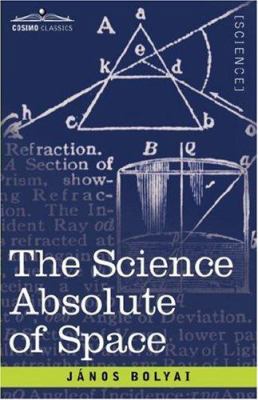
The Science Absolute of Space
![La Science Absolue de l'Espace Indépendante de ... [French] 2012684041 Book Cover](https://i.thriftbooks.com/api/imagehandler/l/19A680F52DA95F5ACEFAD00C6B52B25ABD4C74E0.jpeg)
La Science Absolue de l'Espace Indépendante de ... [French]
WORK IS IN FRENCH This book is a reproduction of a work published before 1920 and is part of a collection of books reprinted and edited by Hachette Livre, in the framework of a partnership with the National Library of France, providing the opportunity...
![La science absolue de l'espace indépendante de ... [French] 0274684195 Book Cover](https://i.thriftbooks.com/api/imagehandler/l/A0F1B93B1EBAF28A1FE570B9563B72851D62F6D7.jpeg)
La science absolue de l'espace indépendante de ... [French]
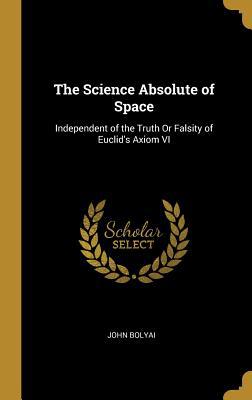
The Science Absolute of Space: Independent of t...
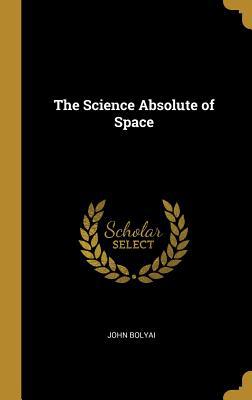
The Science Absolute of Space

The Science Absolute of Space: Independent of t...
This work has been selected by scholars as being culturally important, and is part of the knowledge base of civilization as we know it. This work is in the "public domain in the United States of America, and possibly other nations. Within the United States, you may freely...

The Science Absolute Of Space: Independent Of T...
""The Science Absolute of Space"" is a book written by John Bolyai, a Hungarian mathematician, in which he presents his theory of non-Euclidean geometry. The book focuses on the concept of space, which Bolyai argues is independent of the truth or falsity of Euclid's Axiom XI,...
![Ioannis Bolyai de Bolya Appendix Scientiam Spat... [Latin] 1141208830 Book Cover](https://i.thriftbooks.com/api/imagehandler/l/429EA82DD1082EEEFCC7AB79FDDEBC692191CC10.jpeg)
Ioannis Bolyai de Bolya Appendix Scientiam Spat... [Latin]
![La science absolue de l'espace indépendante de ... [French] 035383677X Book Cover](https://i.thriftbooks.com/api/imagehandler/l/FEA55FD624ABE2101C026C84A26F42DFC95991D2.jpeg)
La science absolue de l'espace indépendante de ... [French]
![La Science Absolue de l'Espace Indépendante de ... [French] 201968084X Book Cover](https://i.thriftbooks.com/api/imagehandler/l/1E95F466CC24B508453B3FC0FAFD76536D395567.jpeg)
La Science Absolue de l'Espace Indépendante de ... [French]
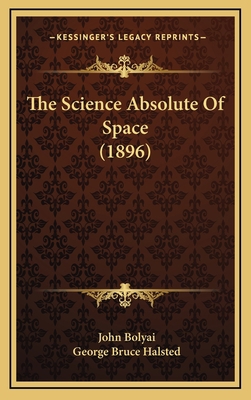
The Science Absolute Of Space (1896)
The Science Absolute of Space is a book written by John Bolyai in 1896. The book is a treatise on the concept of space and its properties. Bolyai argues that space is an absolute entity, which exists independently of any physical objects or phenomena. He also argues that space...

The Science Absolute of Space: Independent of t...
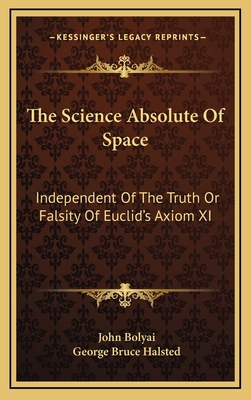
The Science Absolute Of Space: Independent Of T...
The Science Absolute Of Space: Independent Of The Truth Or Falsity Of Euclid�������s Axiom XI is a book written by John Bolyai. The book delves into the concept of space and its relation to Euclid's Axiom XI, which states that...
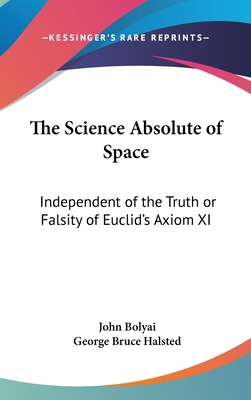
The Science Absolute of Space: Independent of t...
The Science Absolute Of Space: Independent Of The Truth Or Falsity Of Euclid�������s Axiom XI by John Bolyai is a mathematical treatise that explores the concept of space and its properties. Bolyai, a Hungarian mathematician, challenges...
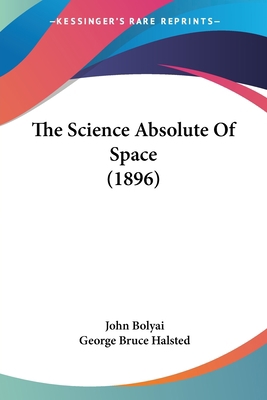
The Science Absolute Of Space (1896)
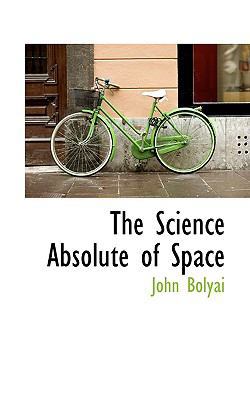
The Science Absolute of Space
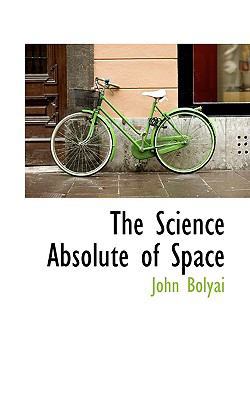
The Science Absolute of Space

The Science Absolute of Space: Independent of t...
![The Science Absolute of Space, Independent of t... [Large Print] 1116764598 Book Cover](https://i.thriftbooks.com/api/imagehandler/l/B18DF0CBE05A99EF79CDEA2CC28AC6B60FFF1E32.jpeg)
The Science Absolute of Space, Independent of t... [Large Print]
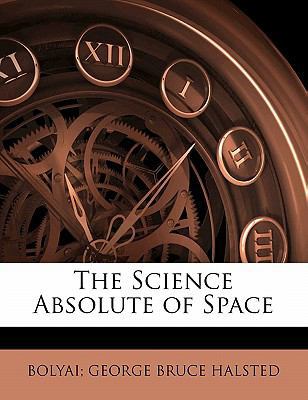
The Science Absolute of Space
![The Science Absolute of Space [Microform]: Inde... 1176964151 Book Cover](https://i.thriftbooks.com/api/imagehandler/l/C6DBAB5B079E3AC4AECF534F29463A28C99EBD01.jpeg)
The Science Absolute of Space [Microform]: Inde...
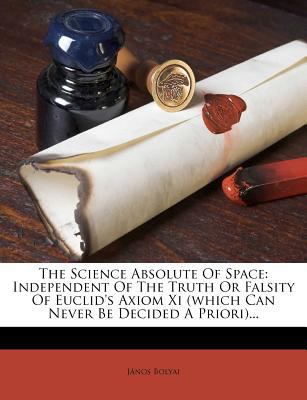
The Science Absolute of Space: Independent of t...
This is a reproduction of a book published before 1923. This book may have occasional imperfections
such as missing or blurred pages, poor pictures, errant marks, etc. that were either part of the original artifact,
or were introduced by the scanning process. We believe...
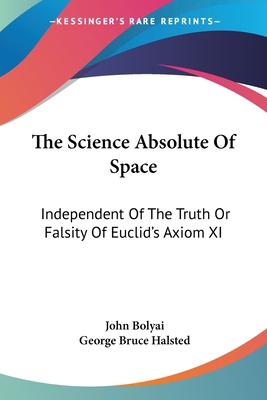
The Science Absolute Of Space: Independent Of T...
""The Science Absolute of Space"" by John Bolyai is a mathematical treatise that explores the concept of space and its properties. The book challenges the validity of Euclid's Axiom XI, which states that parallel lines never meet. Bolyai argues that this axiom is not a necessary...
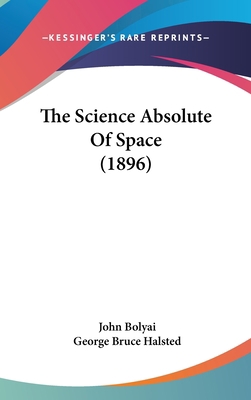
The Science Absolute Of Space (1896)
![La Science Absolue De L'espace Indépendante De ... [French] 1146038534 Book Cover](https://i.thriftbooks.com/api/imagehandler/l/351B432F21C035C9B43F492B5E59084D9038227F.jpeg)



